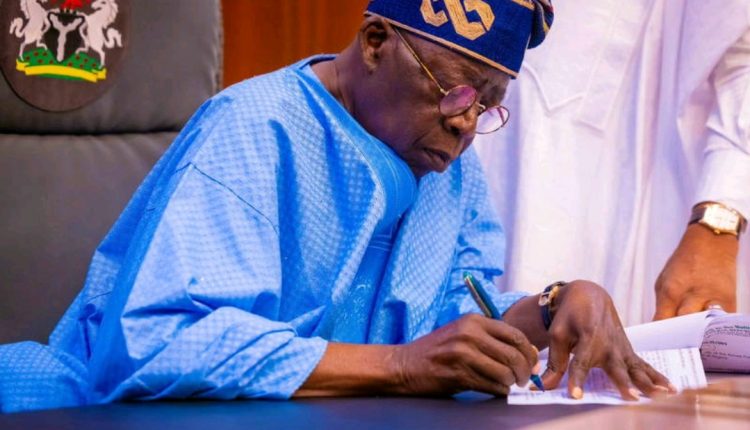TINUBU REFUSES TO SIGN THREE KEY NEW BILLS PASSED BY NATIONAL ASSEMBLY INTO LAW
President Bola Tinubu has declined to approve three bills recently passed by the National Assembly.
The president cited flaws in their financial structures and inconsistencies with existing laws.
In a letter sent to Senate President Godswill Akpabio and read at plenary, Tinubu explained that he withheld assent to the Nigerian Institute of Transport Technology (Establishment) Bill, 2025, and the National Assembly Library Fund Bill due to provisions that could create financial confusion and duplicate funding sources.
He pointed out that certain sections of the Transport Technology Bill clashed with existing financial regulations and could expose the system to misuse.
The bill had proposed the use of one percent of import and export levies to fund the institute, a clause the president said was inserted without approval from the Federal Executive Council.
He added that this would impose unnecessary pressure on government finances.
The president also objected to a section of the bill that permitted the institute to obtain loans below ₦50 million without presidential approval, warning that this could open the door to repeated borrowing and mismanagement.
He further noted contradictions in other clauses that allowed investment of surplus funds despite the institute being federally funded, calling it inconsistent with public finance principles.
Tinubu, therefore, returned the bill to the National Assembly for correction and resubmission.
The president also declined assent to the National Assembly Library Fund Bill, explaining that its funding model could lead to unsustainable fiscal practices if approved.
Similarly, the Nigerian Shippers Council confirmed that Tinubu withheld assent to the Nigerian Port Economic Regulatory Agency (NPERA) Bill.
According to the council’s Executive Secretary, Dr. Pius Akutah, the president returned the bill to the Ministry of Justice due to issues with its mandate and the proposed one percent Freight Stabilisation Fee.
Akutah said the Ministry of Justice had since reviewed and corrected the areas of concern after consultations with the council.
He explained that the bill’s earlier version failed to properly reflect the 2015 presidential order that appointed the Shippers Council as the Port Economic Regulator.
He added that the revised draft now aligns with the order and other related regulations.
He assured that the corrected bill has been sent back to the National Assembly and will be returned to the president once lawmakers reconvene and approve the amendments.



Comments are closed.